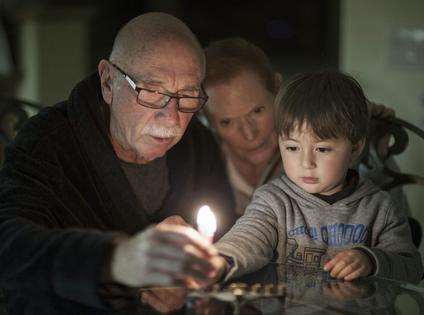Asking people with memory loss about past holidays can help them recall happy times
Published in Senior Living
Many people love the holidays because they are a time to make happy memories with loved ones.
But what if you could do something that would help restore memories in some of the people you love?
Using a process called reminiscence therapy, that may be possible. In reminiscence therapy, elders are encouraged to discuss memories across their lifespan, particularly memories of positive experiences.
As researchers who specialize in geropsychology, and in preparation for the holidays, we wanted to explain this technique and encourage readers to use this evidence-based approach to connect with loved ones with impaired memory and dementia.
Nearly 9% of American adults aged 65 and older meet criteria for dementia. Family members often function as formal and informal caregivers for loved ones who develop dementia, and these caregivers can experience a range of physical and psychological outcomes.
It typically involves asking the person about different events from particular times in the person’s life. Around the holidays, older adults may already be primed to discuss holiday-themed memories due to the influx of sensory cues, including the twinkling of holiday decorations, the smell of holiday cookies, and of course, seasonal music.
An analysis of several studies on research on reminiscence therapy for dementia suggests that it can improve quality of life, communication and mood. Individuals who engage in reminiscence therapy with their loved ones report that the experience is generally positive for them, too, and can be an effective coping strategy when other communication becomes difficult.
Another study found that caregivers reported feeling more emotionally close with their loved ones with dementia when practicing reminiscence therapy. Also, they reported lower informal care costs than caregivers who felt more distant from their loved ones.
Here are some tips to implement reminiscence therapy. Most center on asking questions that may help prompt older adults to reminisce about holiday-themed memories. For example:
What were your family traditions around the holidays when you were growing up?
Did you have a Christmas tree? When and who would decorate it?
Were there particular foods you would make and eat around the holidays?
Did you ever travel for the holidays?
What was your first holiday season with your spouse like?
What were your holiday traditions when you were a parent?
What is your favorite New Year’s Eve memory?
Be an attentive listener. Make eye contact with your loved one, and angle your body toward theirs so that they know they have your undivided attention. Ask follow-up questions when appropriate. This indicates to your loved one that you heard what they said and are interested to know more.
Engage your loved one in low-impact activities that engage multiple senses. For example, baking holiday-themed cookies can elicit memories through touch (rolling out dough, decorating), smell (of ingredients, while baking), and taste (of the finished product).
Encourage your loved ones to be mindful of their sensory experience at each stage of the activity and ask them about any memories that the sensation might bring to mind. Use visual aids to help with prompting retrieval of memories, such as pictures of past holiday events. Pictures can prompt older adults of specific past events.
Listening to holiday-themed music while baking will also engage the auditory part of the brain. A 2013 study of research on music therapy for dementia concluded that music therapy can be a useful intervention in its own right.
We hope you give reminiscence therapy a try this holiday season. It may just be the start of a new family tradition.
[ Deep knowledge, daily. Sign up for The Conversation’s newsletter. ]
This article is republished from The Conversation, a nonprofit, independent news organization bringing you facts and trustworthy analysis to help you make sense of our complex world. It was written by: Michael R. Nadorff, Mississippi State University and Mary E. Dozier, Mississippi State University
Read more:
Supplements for brain health show no benefit – a neurologist explains a new study
Most caregivers of people with dementia are family members, and they need help
How being friends with someone who has dementia can be good for you both
The authors do not work for, consult, own shares in or receive funding from any company or organization that would benefit from this article, and have disclosed no relevant affiliations beyond their academic appointment.






























Comments